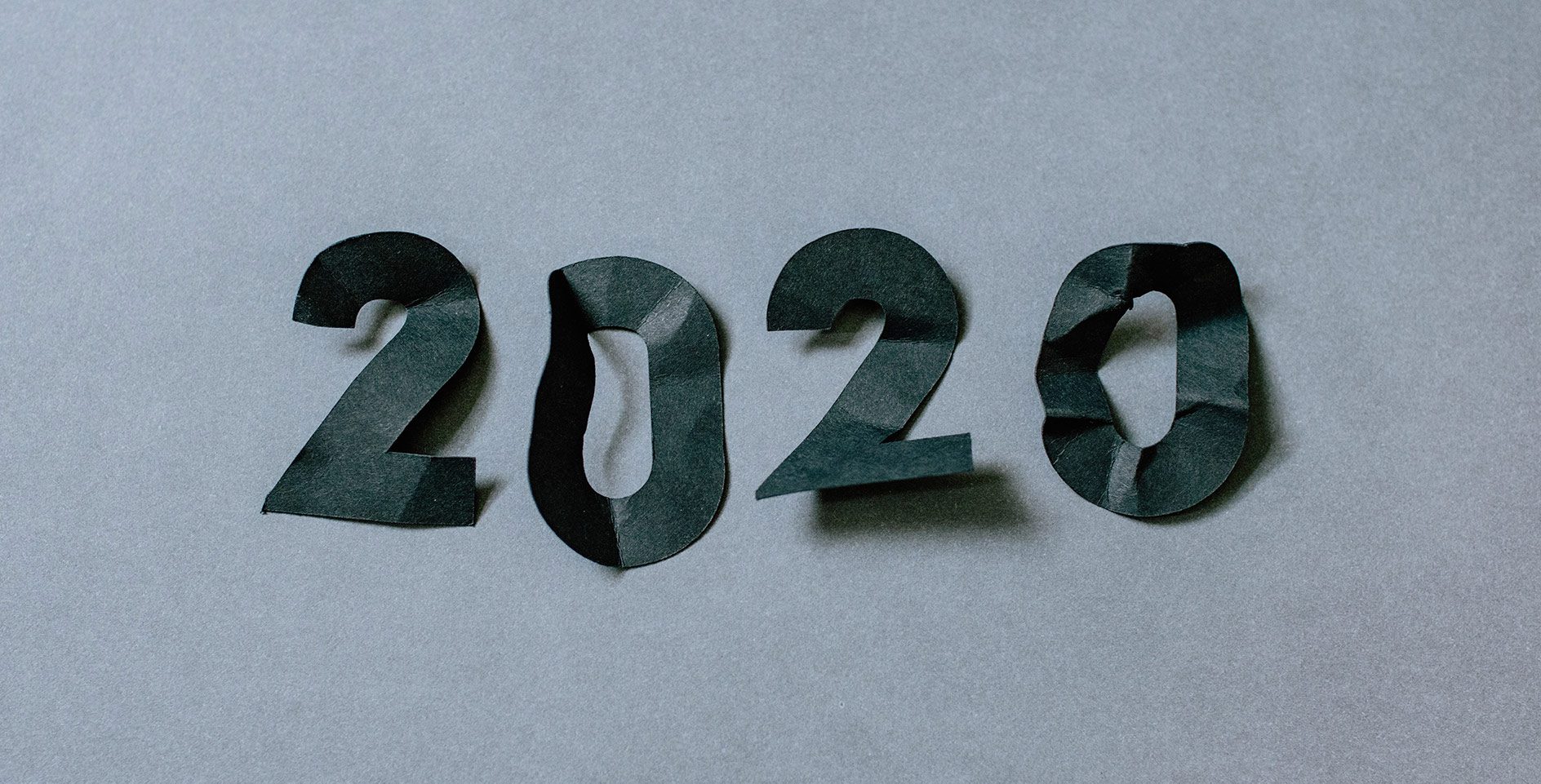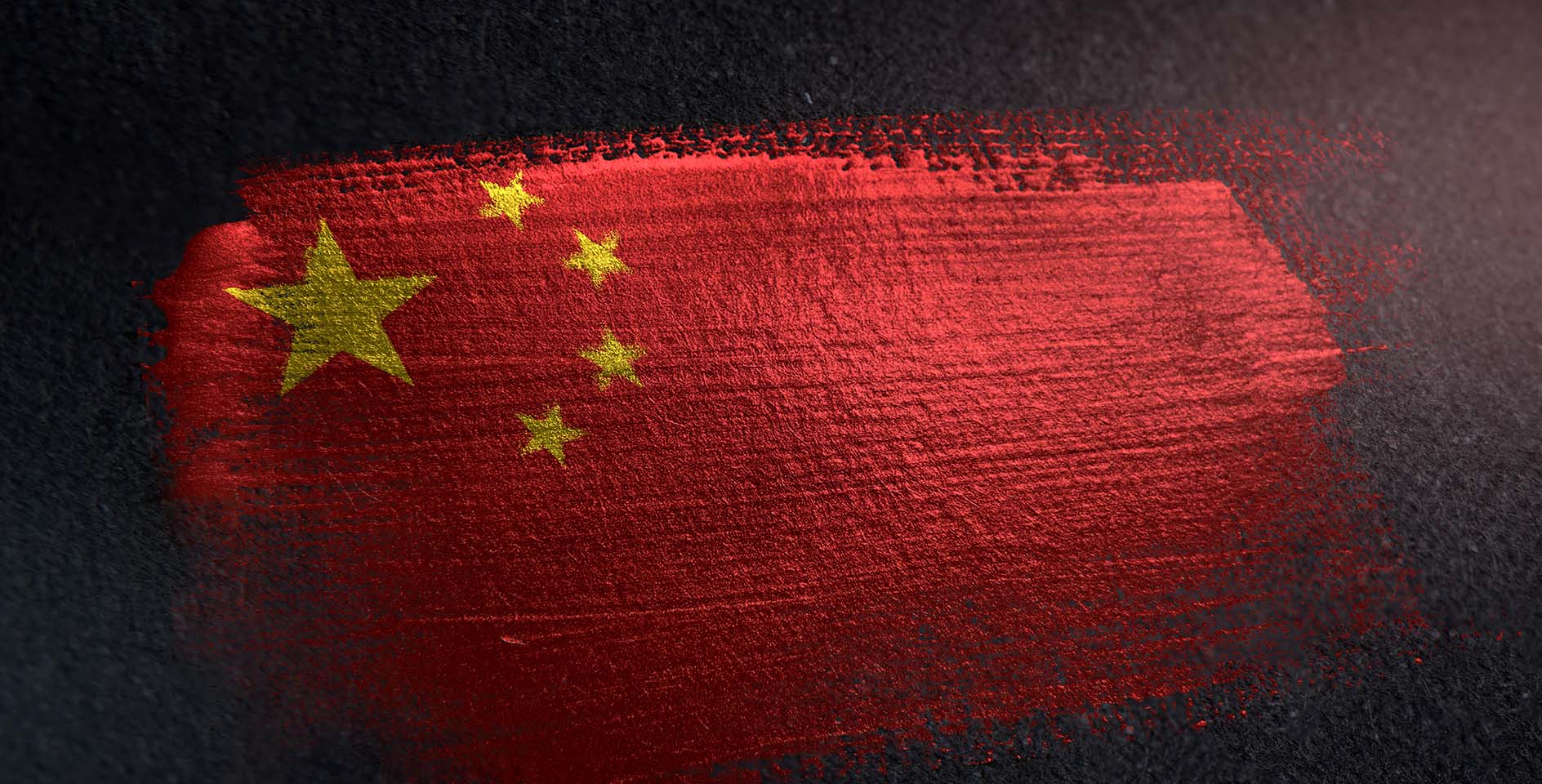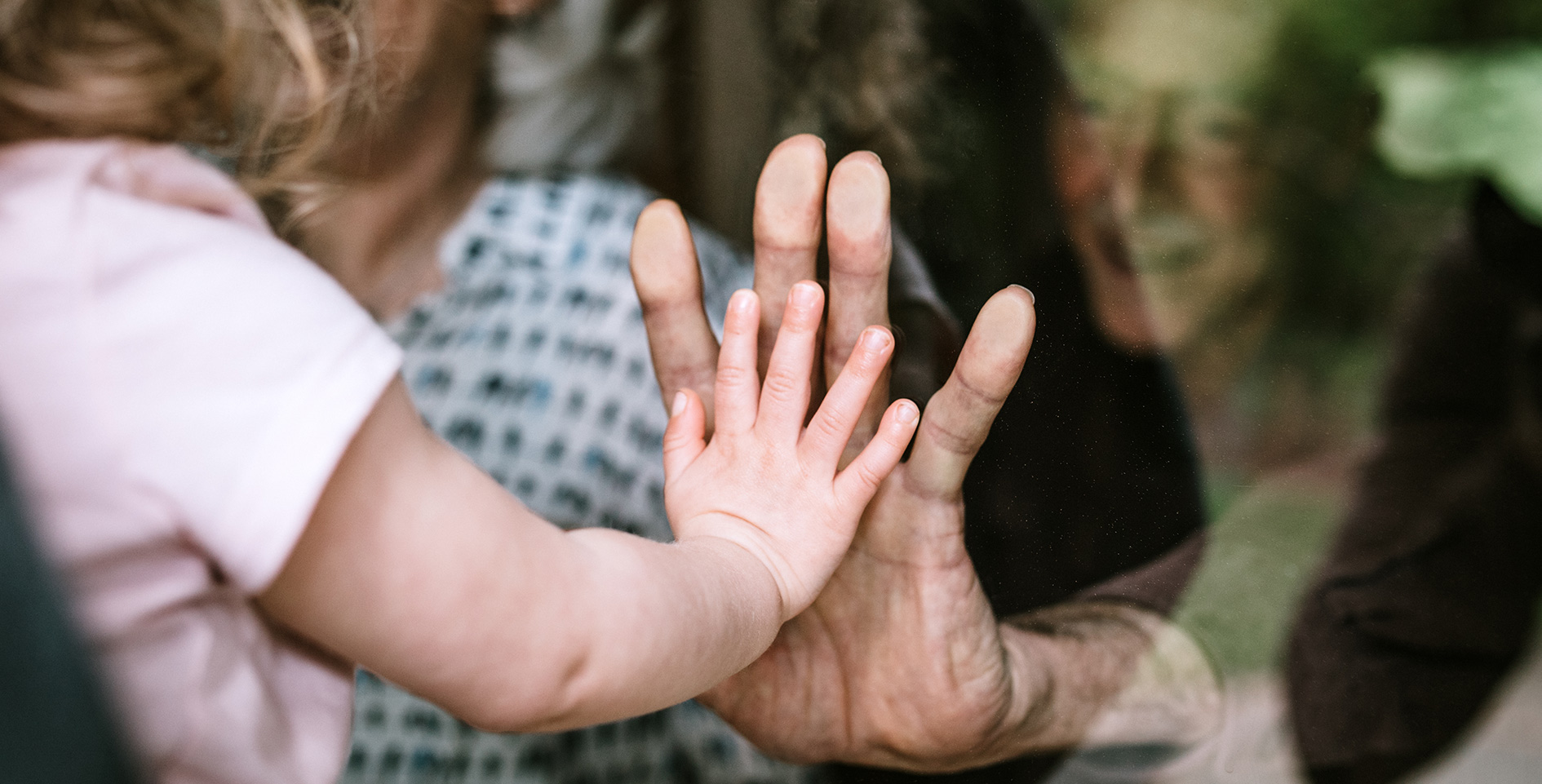I love this time of year. In addition to the joy that comes from having extra time off work to spend with family and friends, I enjoy the mood of reflection that comes along with wrapping up one year and preparing to head into another. One of my favorite things are “best of” lists, and because I am particularly nerdy, the lists I pay the most attention to tend to be about books. Speaking of books, I would recommend keeping an eye out for The Gospel Coalition’s book awards each December, which offer particularly strong recommendations for believers. Another list to look for each year is Russell Moore’s books of the year list. (Bonus: for 2020 he also put together a top 20 books in 20 years list that you shouldn’t miss).
But beyond book lists, there are all sorts of end-of-year wrap-up posts floating around, from personal reflections to world news and events. One I try not to miss is from Google that compiles a video showing us what we searched for each year. So as a thought experiment, I asked myself what things I would highlight from 2020. I know what you must be thinking. Yes, in so many ways it has been an awful year. I trust that the reasons we’re ready to move into 2021 are obvious enough. But before we do, here are just a few things—some serious, others fun—that I wanted to reflect on before we wish this year goodbye.
Robert George and Cornel West
So I’ll break the rules right of the gate by acknowledging that the first thing on my list actually happened around this time last year and not in 2020. But like the arrival of Disney+, it was an unexpected surprise to help me get through a difficult year. Last December, I attended a Trinity Forum event, with an ERLC colleague, featuring an evening of conversation about the subject of friendship between Robert George and Cornel West (we wrote about it here). If you aren’t familiar with George or West, maybe the most important thing to tell you is that these men are intellectual giants on opposite ends of the political and ideological spectrum. But beyond that, you should also know that both are sincere Christians who share a deep and decades-long friendship.
In a year of cultural tumult and racial strife, having a primer in friendship that transcends political and ethnic barriers was a gift I didn’t know I needed. George and West have significant differences on any number of important issues, the kinds of issues we so frequently blast one another over on social media. And yet these two men model exactly the kind of friendship and understanding that is so desperately needed in this political moment. No matter how strong their disagreements might be, each treats the other as an equal and always recognizes the other’s humanity and dignity.
Each one also had the humility to admit that they know they are sometimes wrong, even about things they believe most sincerely. Watching the two of them on that stage was powerful. And as I tried to grapple with questions of racial justice and fractious politics this year, I’ve reflected on it often. The good news is that they’ve taken that show on the road. You can watch a shorter or longer version of that conversation online.
ERLC podcast
I won’t take a lot of time on this one because it seems incredibly self-serving. But one of the real highlights of my year was relaunching the ERLC Podcast with two of my best friends. In January, after months of scheming, I convinced Brent Leatherwood and Lindsay Nicolet to try something new and turn the ERLC’s flagship podcast into a weekly culture rundown featuring news, opinion, conversation, and interviews.
We’re still figuring out what we are doing, but we have had a really successful first year and we’ve interviewed some great guests. I can’t name them all, of course, but we’ve talked to some of my heroes like Jen Wilkin, J.T. English, Benjamin Watson, David French, Katie McCoy, Dean Inserra, and Bryant Wright. You can go back and catch the interviews even if you don’t listen to the full episodes. We’ve also built a great team to help us make the podcast each week (hat tip: Gary Lancaster, Meagan Smith, and Marie Delph).
If you haven’t checked it out yet, feel free to download it in your podcast app: iTunes | Google Play | Stitcher | Tune in
Gentle and Lowly
As an avid reader, I am frequently guilty of trying to push books that interest me on my friends so that I can have someone to discuss them with. In this case, I don’t feel bad about doing so at all. Dane Ortlund’s Gentle and Lowly was released in April of this year, and every single person I know who has read it has simply raved about it. But this is all the more impressive (and wonderful) once you learn what the book is about. As Dane describes it, “this is a book about the heart of Christ” written for “the discouraged, the frustrated, the weary, the disenchanted, the cynical, the empty.” That’s a lot of us in 2020.
This year we’ve experienced the hardships of a broken world in a way we would rather forget. But whether we’re facing a pandemic or a relative paradise, every Christian needs Jesus.
I often say that Christianity isn’t complicated, but it is difficult. We live in a world that is full of sin and sickness and pain. And this year we’ve experienced the hardships of a broken world in a way we would rather forget. But whether we’re facing a pandemic or a relative paradise, every Christian needs Jesus. And not just for “salvation” but for life. Apart from the Scriptures, Dane’s book is the place I would point you to connect with Jesus in a fresh and meaningful way. If your soul is weary or if you just want to focus upon our Savior, consider picking up a copy of Gentle and Lowly. You won’t regret it. (Shameless plug: you can hear an interview we did with Dane about the book on this episode of the ERLC podcast).
J.K. Rowling makes a stand for women
Most people know J.K. Rowling solely as the author of the world-famous Harry Potter series. Growing up, I felt like a fish out of water because I wasn’t a fan. I’m not sure whether it was my Christian convictions or just a lack of interest in the world of fiction. Either way, I didn’t realize it at the time but Harry Potter wasn’t just a popular book and movie series, though it certainly was those things. For a whole generation of kids, that series opened up a kind of alternate reality, as though Hogwarts and all its lore were actually out there somewhere. I say all of that not because there is any need to dispel the fiction of Rowling’s mythic universe, but because recognizing Harry Potter’s massive success actually helps explain her influence.
Rowling not only wrote best-sellers, but she shaped the imaginations of a whole generation. So this summer when Rowling dared to dissent from the orthodoxy of the sexual revolution, specifically to the ways that transgender ideology leads to the erasure of womanhood, people listened. In fact, her actions caused an epic firestorm both in Europe and the United States. And as a result, Rowling was threatened and attacked with the worst kind of scorn and vitriol. She was even upbraided by stars from the Harry Potter film franchise. But even so, Rowling—who is otherwise progressive on many issues related to sexuality—stood her ground. And the world paid attention. As I wrote about at the time, I think there is something important Christians can learn from her example and her stand on behalf of women.
Standing for Uyghurs
Back in October of 2019, my boss Russell Moore posted a tweet with only two words: Google Uyghurs. Shortly before he did so, some friends of ours were kicked out of an NBA game for holding up a sign with the same two words. The reason? They were a part of a movement to draw attention to atrocious human rights abuse in China.
For some time, the Chinese Communist Party (CCP) has been persecuting a minority Muslim population in China. Here is how the ERLC described it in July: “Since April 2017, China has systematically detained more than one million Uyghur Muslims and placed them into what it describes as re-education camps. In these internment camps, Uyghurs are prevented from engaging in their religious practices and forcibly ‘re-educated’ to the Communist Party’s ideological standard of ‘Xi Jinping Thought on Socialism with Chinese Characteristics for a New Era.’”
China has the largest population in the world. The CCP, which exercises total control over the nation’s government, is tyrannical and authoritarian. The CCP routinely persecutes Chinese citizens believed to be political dissidents and egregiously perpetrates human rights abuses against its own people, including minority populations like the Uyghurs. But in addition to all of that, the CCP has basically a zero tolerance policy for criticism of its regime, even from non-Chinese citizens. (Remember the backlash it delivered to the NBA over comments in support of democracy in Hong Kong?)
Here’s why this makes my list. Many times when Christians hear of a worthy cause, we do what we can in the moment but due to the many demands of our lives or our limited attention spans, we usually just move on. In the case of Uyghurs, Christians in the United States have been among the loudest and most persistent voices seeking to defend their rights and calling for an end to these abuses in China.
In addition to raising awareness, we have called for sanctions against China, spoken out about them at the U.N., and opposed U.S. companies purchasing goods that are products of forced labor in China. With every avenue available to us, Christians are continuing to stand up for a persecuted minority. And that is something we shouldn’t forget.
The West Wing and Fresh Prince
If you’ve followed much of what I’ve written, it doesn’t take long to find a reference to the TV series, “The West Wing.” I’ve been into politics since I can remember. When I discovered “The West Wing,” it felt like I had found a show that was written just for me—a serious show about politics that dismisses the darkness of shows like “House of Cards” and rises above the comedy of “Veep.” As a social conservative, I’m often totally at odds with the policies supported by the fictional Democratic administration of “The West Wing.” But even so, in most cases the show also features a brilliant character who opposes their position by making a compelling counter-argument. Grading Hollywood on a curve, I think that is about as much as I could ask for.
But more than policies, maybe the best thing about “The West Wing” is its idealized image of American politics. All of us grow weary of the political fray, of the squabbling and insults and barbs and mistruths. What we want aren’t really politicians but statesmen. We want men and women committed to public service who can rise above the fray—who put the good of the American people above party or ideology. That’s what “The West Wing” provides; not always, but overall. It paints a different portrait of politics and provides the kind of inspiration that those who work in public life need to carry out their work.
In any case, in the latter part of this year, there was not only a “West Wing” reunion but a “Fresh Prince” reunion as well. (Don’t miss Russell Moore’s reflection on the grace in the “Fresh Prince” reunion here.) Obviously, I can’t endorse everything that was said on either occasion, but seeing some of my favorite actors together again—especially watching the White House gang read through the script of one of my favorite episodes—was truly something cool in the middle of this awful year. And that’s something I’ll take with me too.
Scream inside your hearts
So that’s my list. Well, almost. In a year of plague, where face masks became as essential as undergarments, there is a lot I’ll be happy to leave behind. But one last thing I’ll take with me is a catchphrase gifted to us by a Japanese theme park. “Please scream inside your heart” was supposed to be a clever, I guess, way to mitigate the spread of the virus while allowing patrons to enjoy rollercoasters. Instead, it just became a viral meme.
But let’s be honest—2020 has been a year of screaming inside our hearts. For so many reasons, a lot of them bad, it’s been an emotional year. And in the midst of the sadness and frustration and loneliness, or even joy and elation, when you felt those emotions, you knew you had the option to scream—at least inside your heart. And I put that on my list because unlike 2020, I doubt it’s going anywhere anytime soon.










